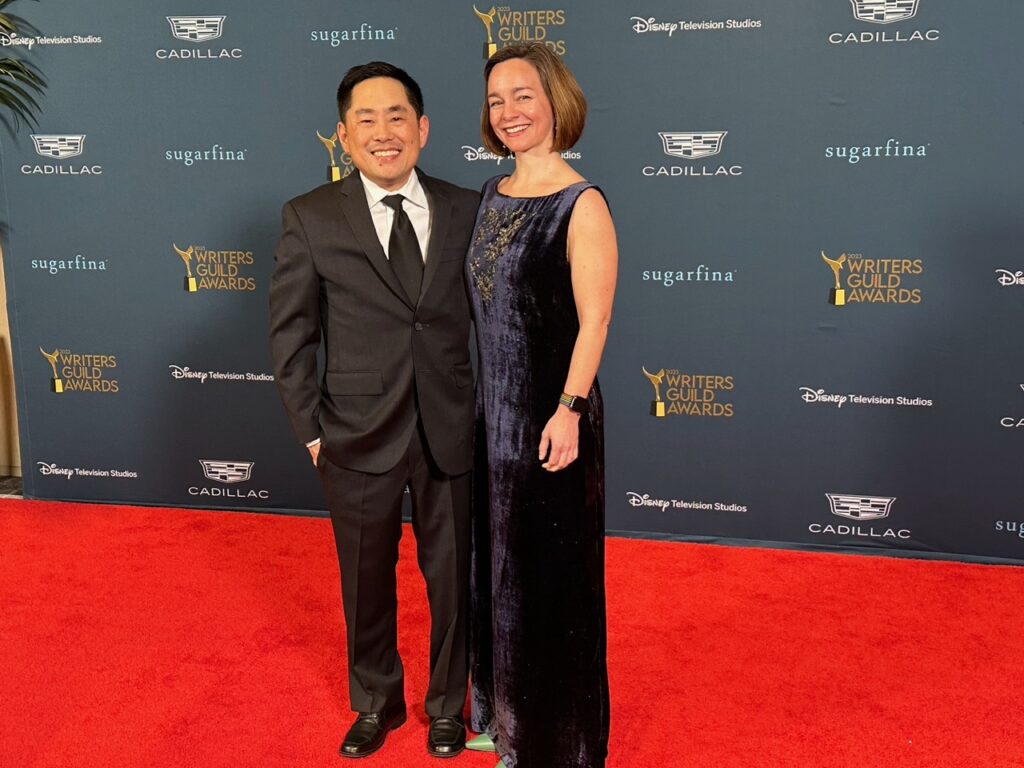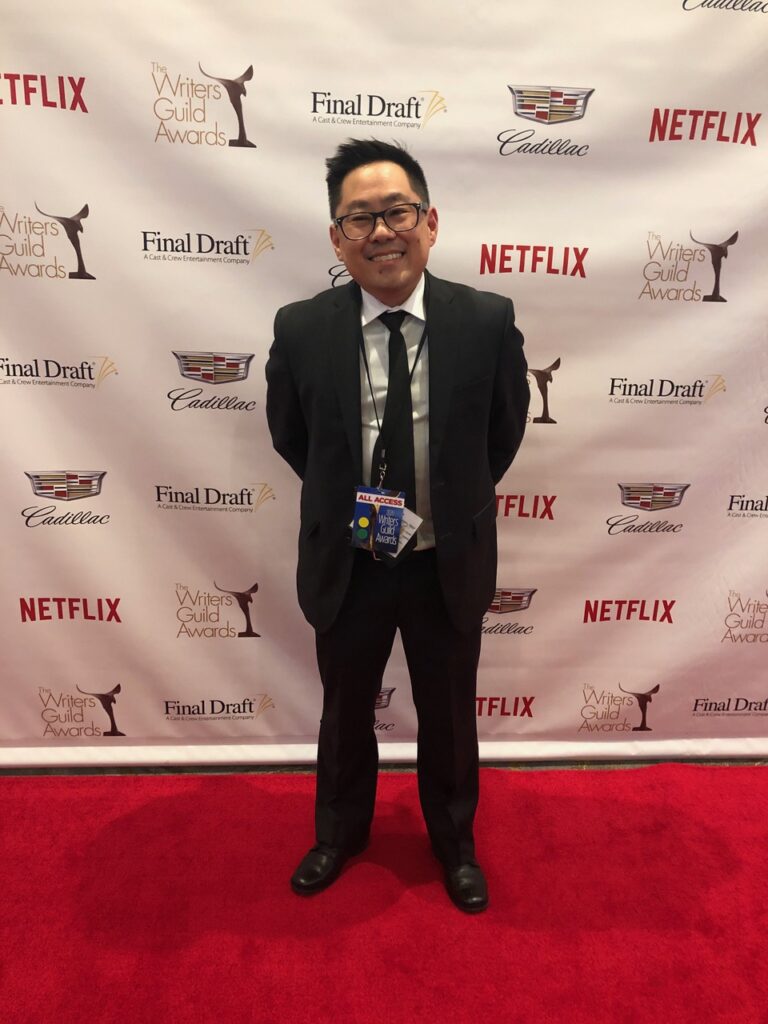Lee Breaks Down What’s at Stake for Writers Guild

The Writers Guild of America (WGA) strike isn’t just about writers getting paid more money.
“Really, it’s the nature of the entertainment business [that] is at stake, and people’s ability to make a living within the new framework of streaming services and [artificial intelligence],” said Ed Lee, associate professor of Visual & Media Arts. “It sounds like hyperbole, but it’s not.”
Before diving into today’s strike, it’s important to get…
Historical Context
There was no talk about the use of artificial intelligence (AI) or streaming services during the 2007 Writers Guild.
Netflix was a DVD delivery service, Apple debuted the first iPhone that year after the strike ended, and Amazon Studios was three years from launching.
But negotiations were a battle, in part due to the Telecommunications Act of 1996, said Lee. That piece of legislation allowed huge conglomerates to be formed: Disney bought ABC, News Corp bought Fox Studios, Viacom bought CBS, and Universal bought NBC.
“Bigger corporations got less inclined to negotiate. They were willing to wait out delays,” said Lee. “It’s always been a struggle – David versus Goliath since the beginning of studios.”

Back to the Present
But now the streaming corporations – Amazon, Apple, Netflix — are behemoths. Yes, you still have studios like Warner Bros, but the Guild’s negotiations with the Alliance of Motion Picture and Television Producers (AMPTP) now involve the aforementioned tech giants. And they’ve got other sources of revenue that allow them to stay afloat without new content being produced.
Lee is a member of the Writers Guild of America West, and has written for the Writers Guild Awards annually since 2016. He said WGA made a lot of concessions during the 2007 strike in terms of streaming residuals. That created a model that does not pay writers for streaming entertainment like they’re paid for broadcast and cable television and film. WGA claims that AMPTP’s share of streaming residuals has cut the average writer’s income.
There are also fewer episodes of streaming television compared to traditional broadcast and cable television. That means less money. Before streaming, unions could point to Nielsen ratings to prove a show’s popularity, but that’s not the case with streaming.
“Netflix doesn’t want to reveal viewership numbers. It may mean writers, actors, and directors asking for their fair share, and streaming formulas don’t necessarily allow for that,” said Lee.
We’re Headed into Unexplored Territory with the Use of AI
“There’s a philosophical difference between writers and studios as to whether [AI] is actually original material,” said Lee. “AI is not capable of creating truly original material. It can only sense patterns in past writing and aggregate data and look at movies that were successful. Those movies were written by people, and to find ownership is almost impossible to find who wrote the script, or is the basis for an AI-generated actor.”
The actress Justine Bateman penned a Newsweek opinion piece on AI that many people are agreeing with, said Lee. Bateman said it starts with AI-written scripts, digitally-scanned actors — and that’s already happening as talent agencies are actively recruiting their clients to be scanned. But those actors are going to get paid 75 cents on the dollar for that work and their images can be triple and quadruple booked.
I
The next step will be films customized for a viewer based on their viewing history, which has been collected for many years. Actors will have the option to have their image ‘bought out’ to be used in anything at all. Viewers will be able to ‘order up’ films—for example, ‘I want a film about a panda and a unicorn who save the world in a rocket ship. And put Bill Murray in it.’
Justine Bateman
“Actors need to protect their likenesses and voices and images from being exploited in ways they never would have anticipated before without AI,” said Lee. “And they need to be compensated when their likenesses and voices are used.
“James Earl Jones has not acted in many years, but his voice was used to voice Darth Vader in Obi-wan Kenobi as an AI voice. That performance was entirely written by a computer,” said Lee. “We need to talk about the ethics of that, but we also have to talk about how that’s compensated.”
From the Picket Line to the Classroom
“A lot of students are understandably curious and worried about their future in the entertainment industry. Particularly students who just graduated and looking for work,” said Lee. “There are a lot of questions about how long the strike will last. The answer is, we don’t know. This is much different strike than before.”
Lee pointed out that ABC announced its fall season and there is only one scripted show – reruns of Abbott Elementary. The rest of it is reality TV. That shows how much broadcast TV is dependent both on scripted and unscripted shows.
“What it says is, they’re anticipating the strike to run past the time broadcast shows start production during summer and into the fall,” said Lee.
Not Just Writers
While the WGA strike is ongoing, many other entertainment-based unions are not crossing the picket line, and will possibly will be striking themselves next month. Both the Screen Actors Guild – American Federation of Television and Radio Artists (SAG-AFTRA) and the Directors Guild of America (DGA) have contracts expiring on June 30. The latter represents more than just directors, it represents directorial teams – assistant directors, production managers, stage managers, and more. And SAG-AFTRA’s National Board voted unanimously to recommend that members authorize the board to call a strike after their contract expires.
“There is a lot of cross-over between the unions. There are actors who are directors, and directors who are writers, and writers who are actors,” said Lee. “Hopefully, they’re able to negotiate new formulas that are fair and equitable to film and TV writers that take into account residuals where writers can be properly paid for successful creative works they’ve produced.”
Categories